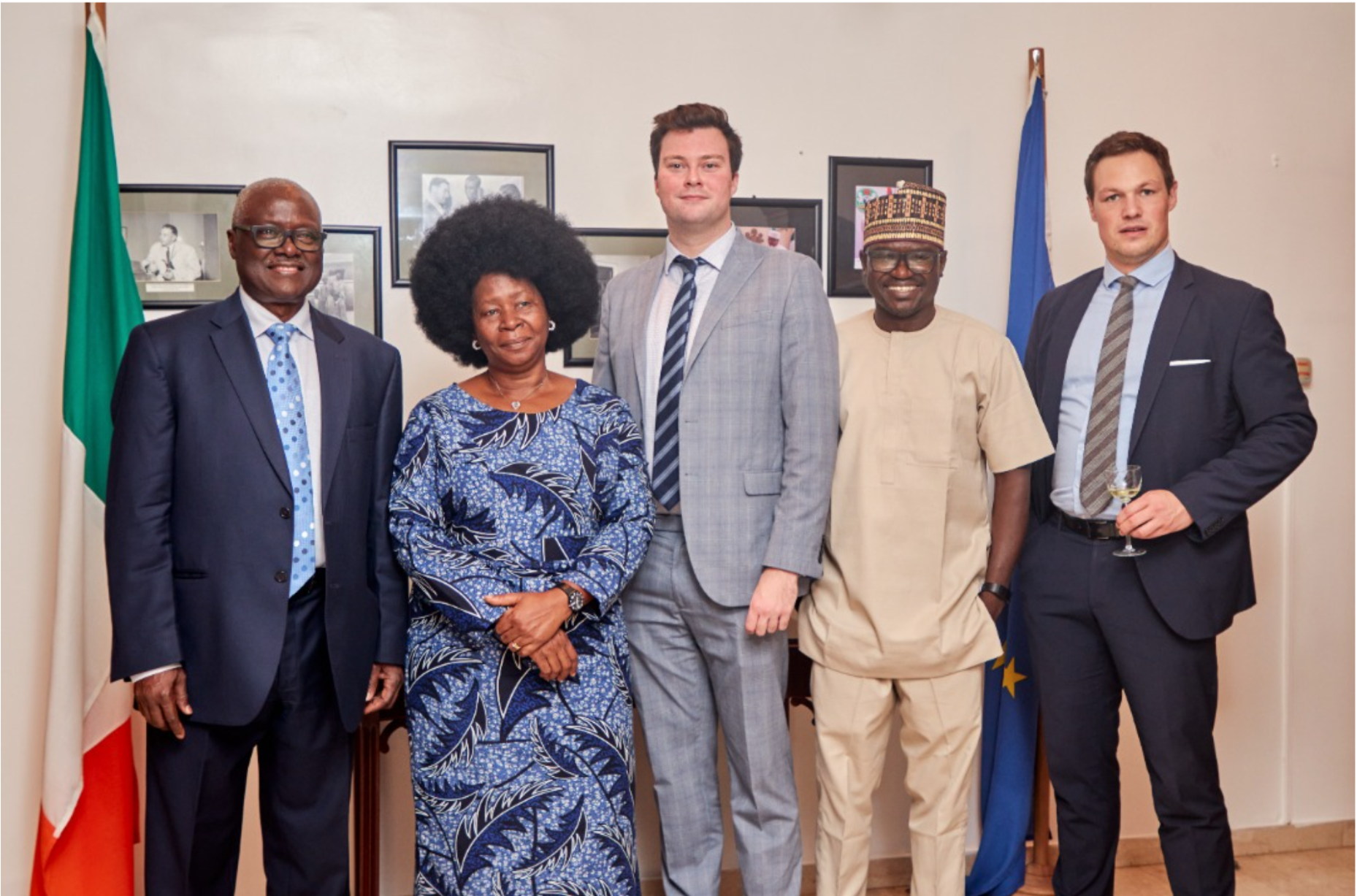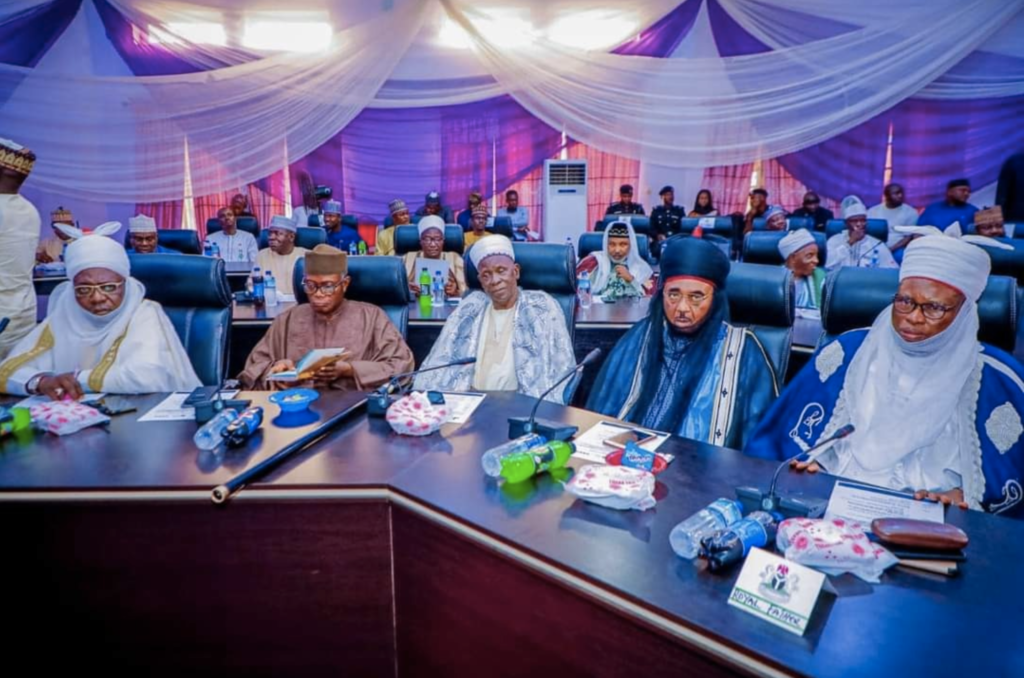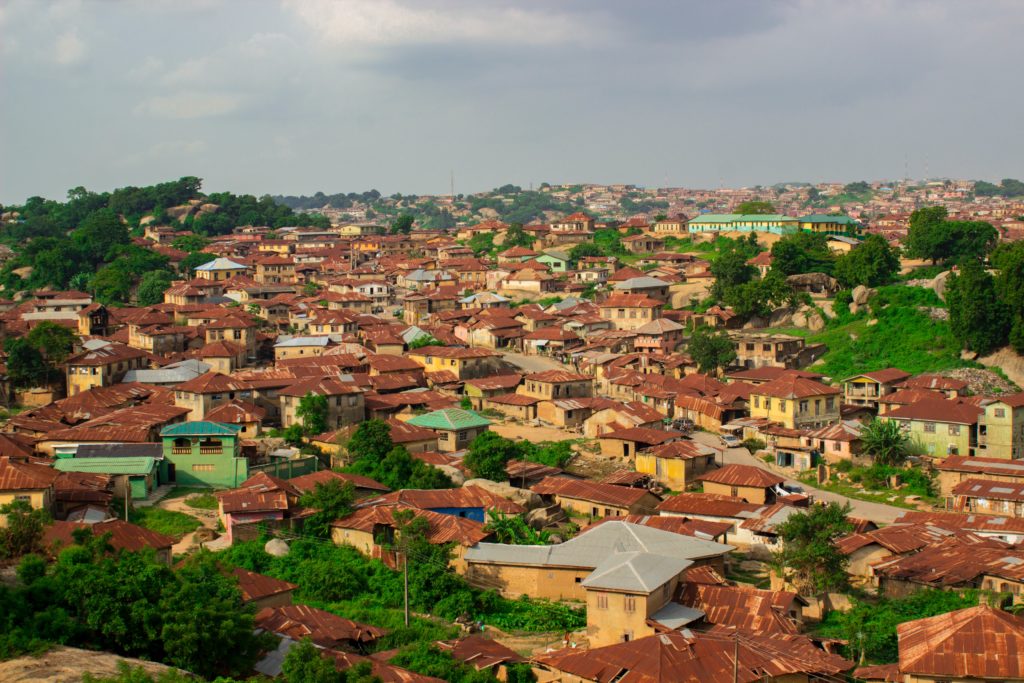post / 22 September 2022
PAST EVENT: IFIT’s Middle Belt Brain Trust and the Embassy of Ireland in Abuja mark launch of “Ending Violence in Nigeria’s Middle Belt” strategic report

Photo (left to right): MBBT Chairman General (Rtd) M.L. Agwai; Ene Ode, Country Director, Action Aid; Shane Rice, Irish Embassy; Thomas Jr Bimba, IFIT Local Coordinator in Nigeria; and Matthias Dold, German Embassy.
On 20 September 2022, IFIT’s Middle Belt Brain Trust (MBBT) and the Embassy of Ireland in Abuja held an event to launch the MBBT’s comprehensive strategic report, Ending Violence in Nigeria’s Middle Belt.
Hosted by the Embassy of Ireland, the event was attended by representatives from USAID, the Netherlands, the UK, Finland, Germany, Sweden, Norway, the Norwegian Refugee Council, and TY Danjuma Foundation, among others.
Attendees discussed the rationale behind the selection of the Middle Belt as the focus of the report, as well as the worsening trends – including high levels of violence – that have been affecting the region in recent years. It was highlighted that the problems experienced regionally within the Middle Belt are representative of dynamics in Nigeria as a whole, and that the north-south overlap combined with the area’s significant ethnic diversity make regional security crucial for the entire country.
Going beyond existing literature and understandings, the MBBT’s research concretely demonstrates the multifaceted and multidimensional nature of the conflict in the Middle Belt. It highlights the complexity of reducing violence, but also the important promise of new proposed lines of action across multiple areas.



